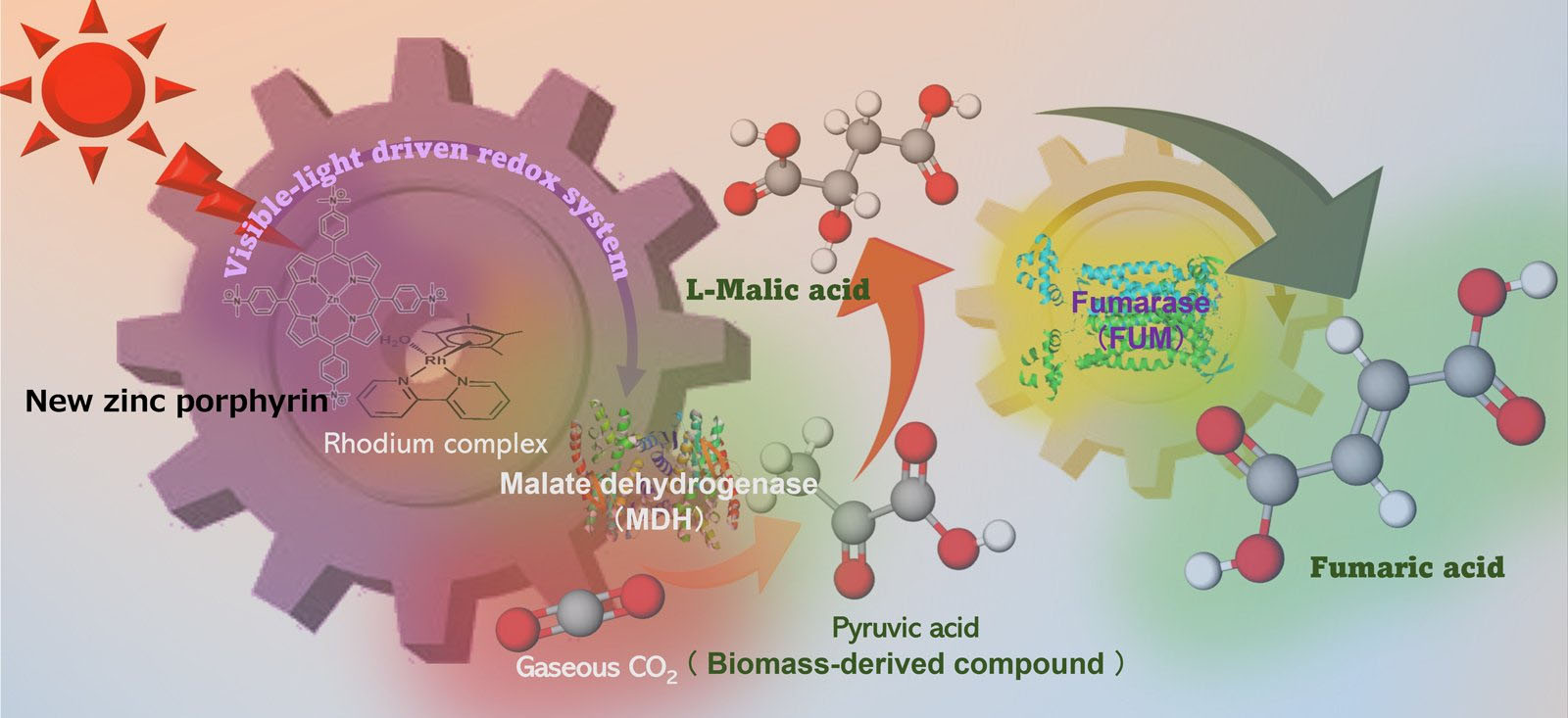| Feb 16, 2024 |
Advanced artificial photosynthesis catalyst uses CO2 more efficiently to create biodegradable plastics
|
|
(Nanowerk News) Amid growing global concern over climate change and plastic pollution, researchers at Osaka Metropolitan University are making great strides in the sustainable production of fumaric acid – a component of biodegradable plastics such as polybutylene succinate, which is commonly used for food packaging.
|
|
The researchers have managed to efficiently produce fumaric acid, which is traditionally derived from petroleum, using renewable resources, carbon dioxide, and biomass-derived compounds.
|
 |
| A schematic diagram of how fumaric acid is produced from carbon dioxide using solar energy. Scientists have developed a new environmentally friendly system that doubles the efficiency of fumaric acid production. (Image: Yutaka Amao, Osaka Metropolitan University)
|
|
In a previous study, a research team led by Professor Yutaka Amao of the Research Center for Artificial Photosynthesis at Osaka Metropolitan University demonstrated the synthesis of fumaric acid from bicarbonate and pyruvic acid, a biomass-derived compound, using solar energy.
|
|
They also succeeded in producing fumaric acid using carbon dioxide obtained directly from the gas phase as a raw material. However, the yield in the production of fumaric acid remained low.
|
|
In their latest research, published in Dalton Transactions ("An effective visible-light driven fumarate production from gaseous CO2 and pyruvate by the cationic zinc porphyrin-based photocatalytic system with dual biocatalysts"), the researchers have now developed a new photosensitizer and further advanced an artificial photosynthesis technique that doubles the yield of fumaric acid compared to conventional methods.
|
|
“This is an extremely important advancement for the complex bio/photocatalyst system. It is a valuable step forward in our quest to synthesize fumaric acid from renewable energy sources with even higher yields, steering us toward a more sustainable future,” said Professor Amao.
|

